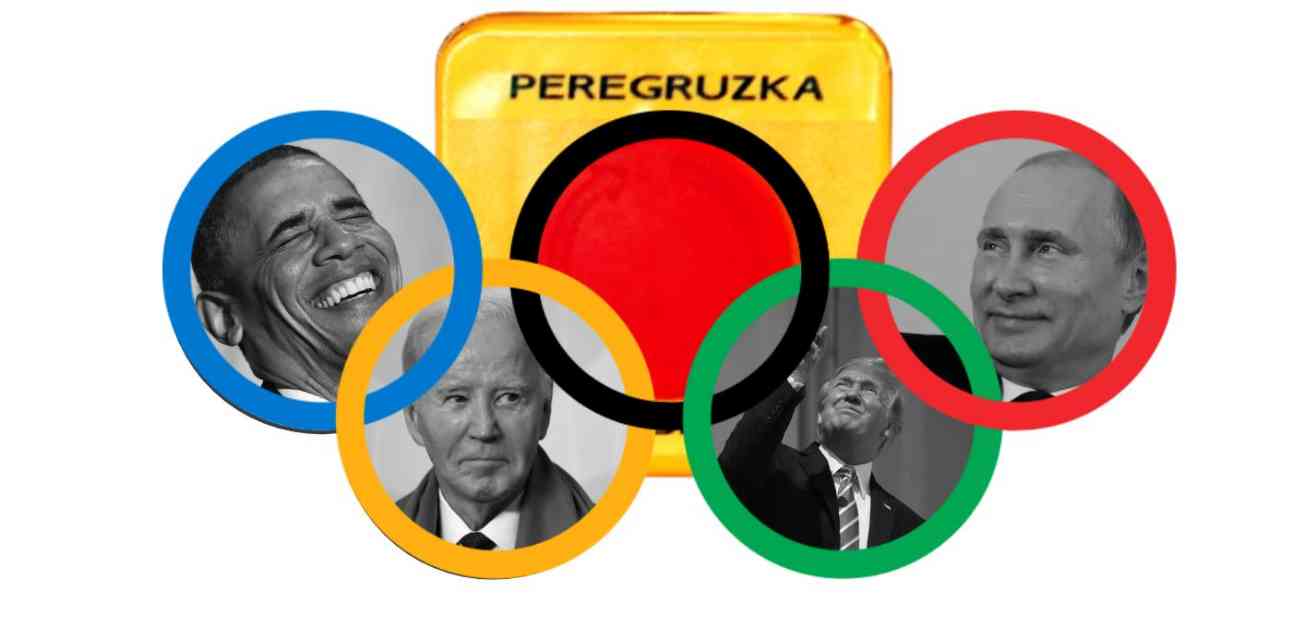Presidents Biden, Obama, Trump: The Perilous Russian Reset Cycle
As the world watches, the intricate dance between the United States and Russia unfolds once again, with echoes of past mistakes reverberating through the corridors of power. In a surprising turn of events, President Donald Trump finds himself treading a path eerily similar to that of his predecessor, President Barack Obama. The irony is palpable: Trump, who once harshly criticized Obama’s Russia policy, now appears to be following in his footsteps. Since assuming office, Trump has engaged in multiple undisclosed calls with Russian President Vladimir Putin, sparking speculation and concern among political observers and security experts alike.
A Shift in Rhetoric and Policy
Following these secretive conversations, a notable change in Trump’s stance towards Russia became apparent. The President began parroting Kremlin talking points regarding Ukraine, asserting that Putin’s invasion was justified due to fears about NATO expansion—an argument that has been repeatedly debunked by experts in the field. Moreover, Trump shifted blame onto Ukrainian President Zelensky for failing to end the conflict, disregarding the complex geopolitical realities that have shaped the ongoing crisis in the region. This pivot from criticism to appeasement mirrors a troubling pattern seen in previous administrations.
The Historical Context: From Obama to Biden to Trump
The roots of this perilous cycle can be traced back to the aftermath of Russia’s 2008 war against Georgia—a brazen act that violated established international norms and set the stage for Putin’s aggressive expansionist agenda. The tepid response from the democratic world in the wake of this aggression only served to embolden the Russian leader, leading to further escalations in Crimea and Donbas. The Obama administration’s ill-fated attempt at a “reset” with Russia in 2009 laid the groundwork for future territorial incursions and geopolitical instability.
Fast forward to 2021, and we witness President Biden’s diplomatic overtures towards Putin, culminating in a summit in Geneva aimed at establishing a “stable, predictable relationship.” However, mere months later, Russian tanks rolled towards Kyiv in a brazen display of military aggression. The stark parallels between these events underscore a troubling trend of diplomatic resets with Russia leading to territorial aggression and global instability.
A Personal Perspective: Witnessing the Fallout in Georgia
As a firsthand witness to the fallout of Russia’s 2008 war against Georgia, I stood on the outskirts of Tbilisi, watching in horror as Russian tanks advanced unopposed towards the capital. The sense of helplessness and impending doom was palpable, as Georgian civilians fled in the face of overwhelming military force. It was not diplomacy or concessions that halted this advance, but a show of strength by the USS McFaul, an American destroyer capable of neutralizing Russian forces in minutes. This moment crystallized a fundamental truth: Putin responds to strength, not diplomatic gestures.
The Global Ramifications: Lessons for the Future
The implications of the ongoing crisis in Ukraine extend far beyond its borders, resonating with authoritarian regimes around the world. China, in particular, is closely monitoring Western responses to the conflict, drawing parallels with its own territorial ambitions in the Pacific. The precedent set in Ukraine will have far-reaching consequences for global security and America’s strategic position in the years to come. As other authoritarian regimes take note of the West’s response to Russian aggression, the need for a coherent and principled approach becomes increasingly urgent.
Looking Ahead: A Call for Strength and Resolve
In the face of escalating tensions and geopolitical uncertainty, the path forward is clear: concrete strength, not abstract goodwill, is essential for meaningful diplomacy and lasting peace. The historical pattern of appeasement and resets with authoritarian regimes has only served to embolden aggression and undermine global stability. It is incumbent upon Western leaders, regardless of political affiliation, to recognize this dangerous cycle and take decisive action to counteract it.
As Ukrainians continue to endure the brutal realities of war, the importance of providing them with the necessary support and resources to achieve victory cannot be overstated. The lessons of history are clear: appeasement only postpones conflict, making it larger and deadlier when it inevitably arrives. Ending the war in Ukraine requires a steadfast commitment to strength and resolve, not concessions to imperial ambitions. The time for action is now.

















